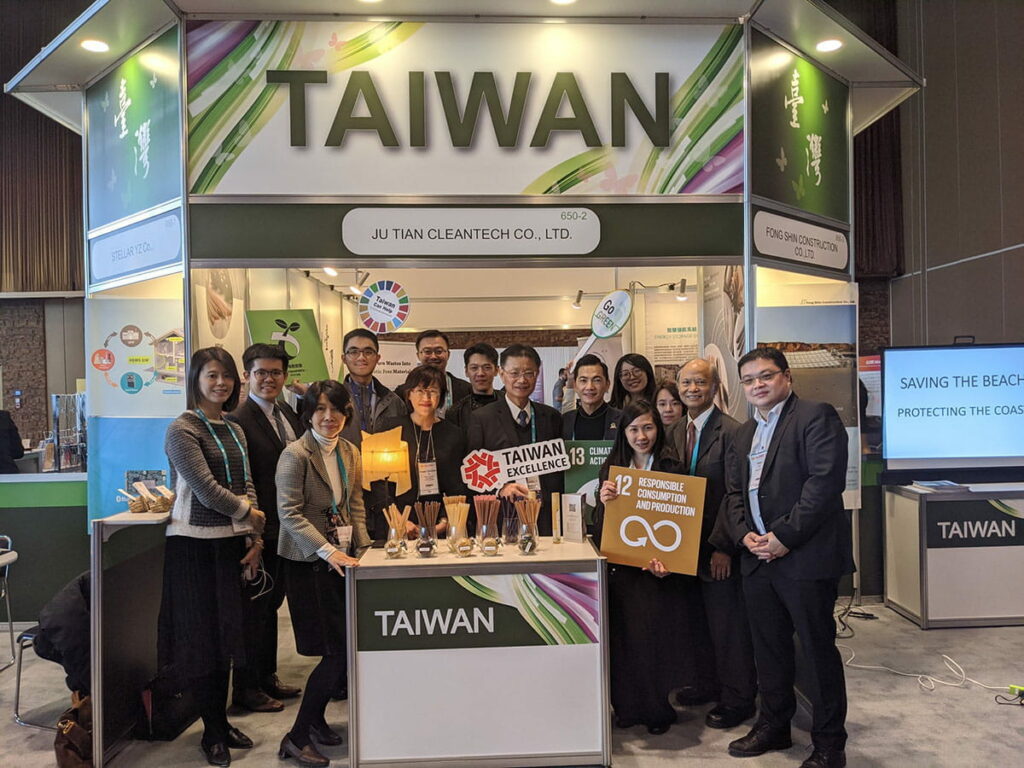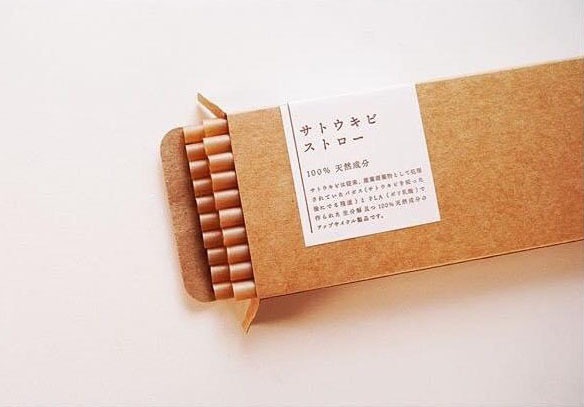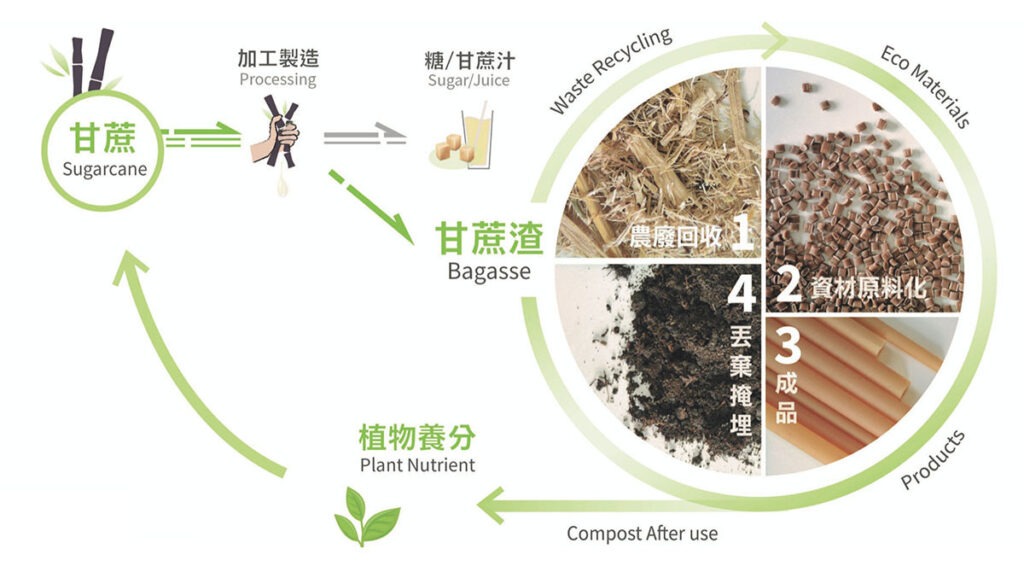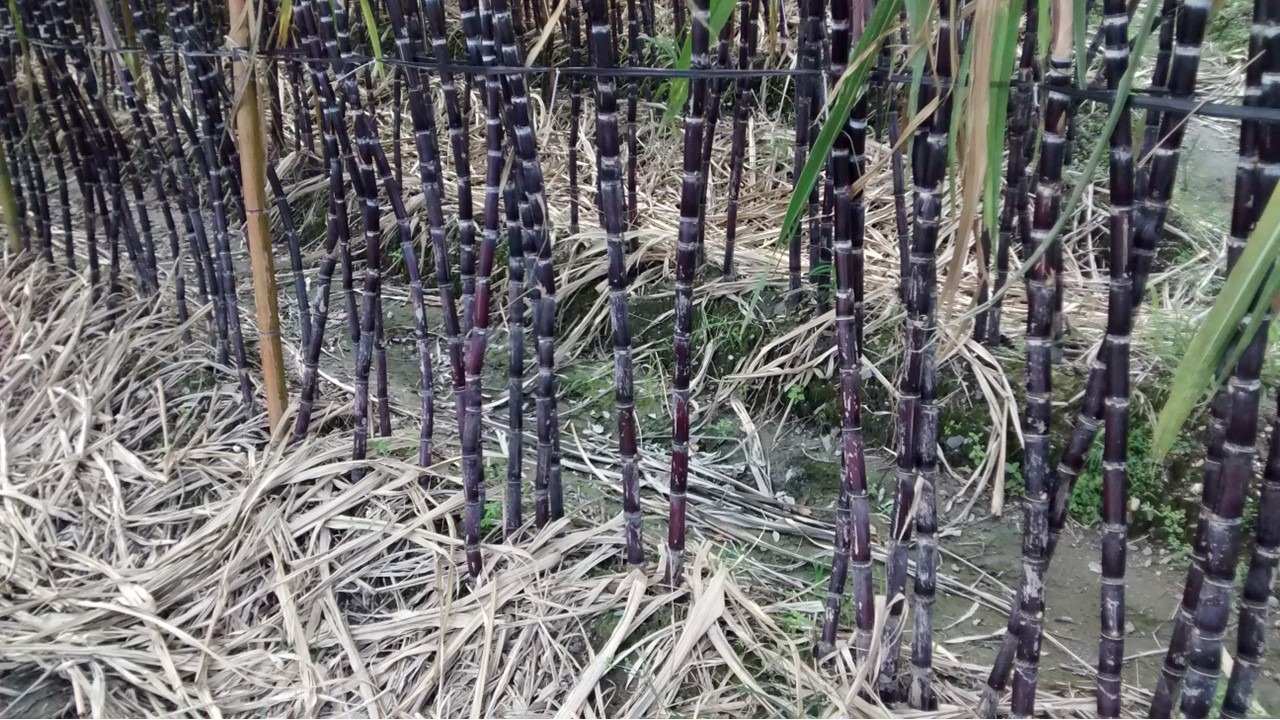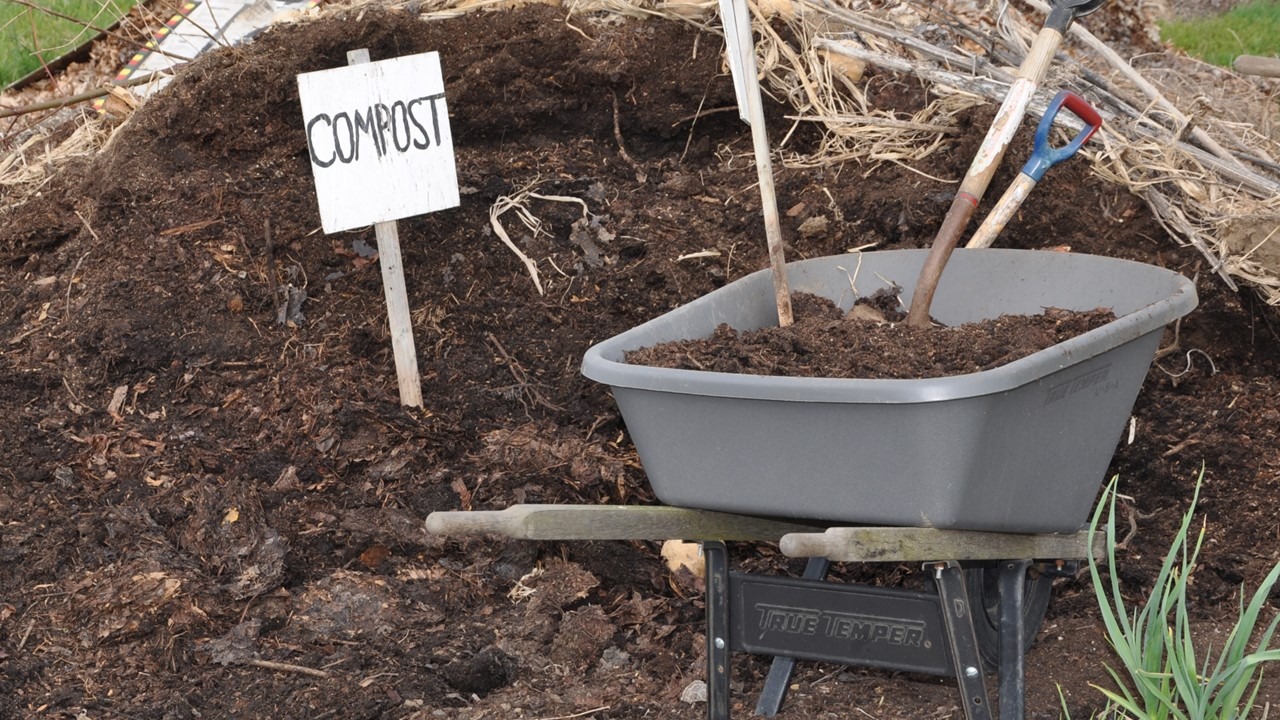
The monthly orders for this straw exceed tens of millions of pieces, and nearly 90% are sold abroad, with customers in 26 countries. This is not a star product of an established company, but a proud result achieved in a short time by the JU-TIAN Cleantech Co., Ltd., a startup company established in 2018. What secrets are hidden in this straw that make so many international customers quickly decide to purchase and adopt? The key lies in the global “Circular Economy” thinking. When “waste” becomes a valuable raw material and “garbage” can be used as a nutrient, many industrial supply chains will usher in a new look.
The new polymer material developed by JU-TIAN is an environment-friendly plastic recycled from the “bagasses of sugarcane”, a seemingly inconspicuous agricultural waste. Adopting the glass house solarization and low-carbon treatment methods and meeting the industrial compostability standards, this plastic can be decomposed again after use. Chien-chung Huang, CEO of JU-TIAN, said: “Environment-friendly zero-waste design is our core philosophy. Through renewable raw materials, clean technology-processing processes and degradable products, we can turn around the traditional linear economy that continuously consumes resources to achieve an endless bio-circulation system with low environmental impact.”
With the festering problems of plastic waste, many countries around the world have begun to implement stricter plastic restrictions for merchandise takeout and shopping. Therefore, the environment-friendly and practical straw made of bagasses of sugarcane has become a hot-selling choice since its introduction. Inquiries for other items such as cups, lids, tableware, and so on are also high. Meanwhile, JU-TIAN’s technology is not only suitable for bagasses of sugarcane, but also for a variety of agricultural wastes including coffee bean pulp, tea leaves, corn stalks, soybean dregs, etc. All of them can be used as raw materials, which can be adapted to the recycling process according to the locally featured agricultural practices around the world.
After its initial success, JU-TIAN is expected to launch in 2020 a second-generation product that does not contain PLA, which will meet the domestic compostability standard and upgrade its function for environmental protection.
Chien-chung Huang said: “The new material decomposes quickly. Under the low-temperature climates in Europe and America, it can also be buried and decomposed at room temperature. It is also suitable for household composting facilities and can be processed together with kitchen waste. The recycling method is more practical and convenient.”
In France, which leads the development of the global ecological economy, JU-TIAN is a frequent visitor to relevant international forums and exhibitions and has cooperated with local industry players in a demonstration project of recycling grape pomace into furniture. JU-TIAN, whose strengths are widely recognized by the industry, is the only one from Taiwan and one of the only two companies from Asia that has been invited to take part in the “Plastipolis Plastic Industry Competitive Cluster” in France. In the second half of 2020, JU-TIAN is expected to open branches in France, Canada and other places to continue deepening its international market operations.
Chien-chung Huang pointed out: “Environmental protection should not be just a passive slogan, but an active practice.” Biomaterials and sustainable materials will gradually replace traditional plastics. Many international brands have adopted special programs, industry-university cooperation, etc., trying to use a variety of environment-friendly materials for design, and serval companies at home and abroad have actively cooperated with JU-TIAN. For example, Oh!Cafe has asked JU-TIAN to recycle its coffee bean pulp, making it into coffee straws for in-store use; or CCILU, a plastic shoe brand, has worked together with JU-TIAN to develop the coffee bean pulp into high-strength and high-durability plastic materials, which reduce product carbon by 30%.
Consumer choice is also an important force conducive to change. Responsible consumption can drive responsible production. Many brands that pay attention to corporate social responsibility (CSR) are also actively taking actions for environmental sustainability. Chien-chung Huang believes: “It doesn’t have to be a large company to promote environmental protection. Businesses of any size can start from a small place. The conformity of concepts is the main reason why many customers have named JU-TIAN as their partners. This is also the network that we will continue to cultivate in the future. It is hoped that we can work together to launch more new products that are both environment-friendly and practical.”
source:https://cloudcdn.taiwantradeshows.com.tw/2020/tiww/enewsletter03/topic-en.html
